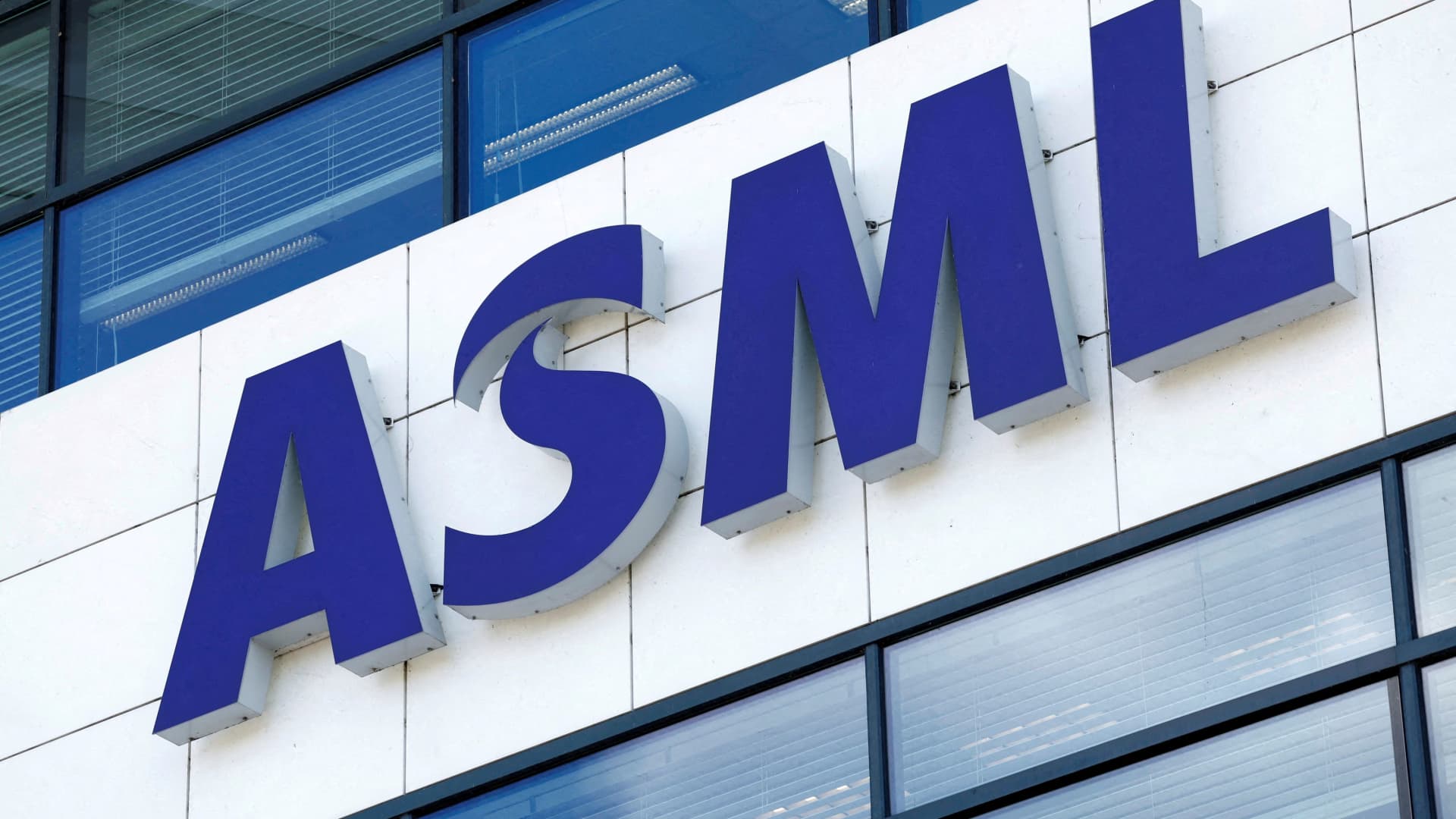
A top Dutch government minister said he’s confident the country’s coveted chip-equipment maker ASML will remain in the Netherlands following threats from the company to move its operations abroad.
Steven van Weyenberg, the Netherlands’ finance minister, told CNBC’s Karen Tso on Thursday that he isn’t worried by ASML’s statements threatening to leave the country. The company has since walked back the comments.
In a January call with investors, ASML CEO Peter Wennink said: “The consequences of limiting labor migration are large, we need those people to innovate. If we can’t get those people here, we will go somewhere where we can grow.”
His comments followed controversial plans by the Dutch to scale back tax breaks for highly skilled migrants and limit the number of foreigners who can attend Dutch universities.
ASML is core to the world’s semiconductor supply chain. The company makes extreme ultraviolet lithography (EUV) machines, which are critical to the semiconductor industry for manufacturing integrated circuits.
EUV machines generate an incredibly short wavelength of light in large quantities to print small, complex designs on microchips. The EUV light is created with tiny explosions of molten tin happening at extreme speeds and then bounced off mirrors that ASML says are the flattest surfaces in the world.
“I think many people, many countries would love to welcome ASML, but I think they’re strongly embedded in the Netherlands,” Van Weyenberg told CNBC Thursday.
The minster said he had been involved in discussions between the cabinet and ASML last month concerning the firm’s plans to grow in the Netherlands and whether there were enough roads, houses and skilled people from abroad to foster that growth.
“I’m very optimistic about ASML’s future and that it will be within the Netherlands,” he said.
ASML logo is seen at the headquarters in Veldhoven, Netherlands June 16, 2023.
Piroschka Van De Wouw | Reuters
The Dutch government last month launched a campaign dubbed “Operation Beethoven” in an attempt to address ASML’s concerns and convince them to stay in the Netherlands, Reuters reported.
The semiconductor-equipment maker has since ruled out a complete departure from the Netherlands, but the company remains unhappy with its home country’s approach to fostering growth.
“There is a considerable gap between the concerns of industry, and what we think is necessary, and what politicians think,” ASML CEO Peter Wennink told reporters after a meeting with the Dutch government in March, according to Reuters. If ASML can’t grow in the Netherlands “it can do so elsewhere”, he reportedly said.
Though the Dutch are still working to appoint a new government, plans previously approved by Parliament to cap the number of foreign students and scrap the skilled-migrant tax break have upset several businesses in the country, including ASML and Dutch chipmaker NXP.
More than 40% of ASML’s 23,000-strong workforce in the Netherlands are not Dutch.
The Netherlands has previously seen some of its multinational firms ditch its shores for greener pastures. In 2021, for example, oil major Shell decided to move its corporate headquarters and tax base to London from Amsterdam.
Meanwhile, Unilever, the Anglo-Dutch consumer goods firm, in 2020 moved forward with a plan to unify its headquarters in London, ending a hybrid structure that saw the firm dual-headquartered in both the U.K. and the Netherlands.
Britain’s high-growth technology firms have gripes of their own, however, in terms of how the government is encouraging foreign investment into tech startups, as well as the hiring of foreign labor following the country’s Brexit vote.
‘Crown jewel’ of Dutch economy
ASML has also been caught up in geopolitical tensions between the U.S. and China. In January, the company was barred by the Dutch government from exporting some of its tools to China.
The trade block was imposed after the U.S. government tightened export controls on advanced semiconductors and chipmaking tools to China in October, building on previous rules.
Van Weyenberg said the Dutch government was cooperating with ASML and the U.S. on chip export controls on China.
“ASML is one of the crown jewels of the Dutch economy,” Van Weyenberg said. “They are really one of the basis of our growth model.”
“We want to support them, we actually help them to grow in the Netherlands. And I think there is a great future for them ahead also complying with all the rules that are on the playing table,” he added.
But he also warned that global fragmentation caused by fractures in the world economy puts a small and open economy like the Netherlands at risk.
He added that from a security risk perspective, “we have to also look at China and make sure they play by the same rules.”
Source link












Recent Comments